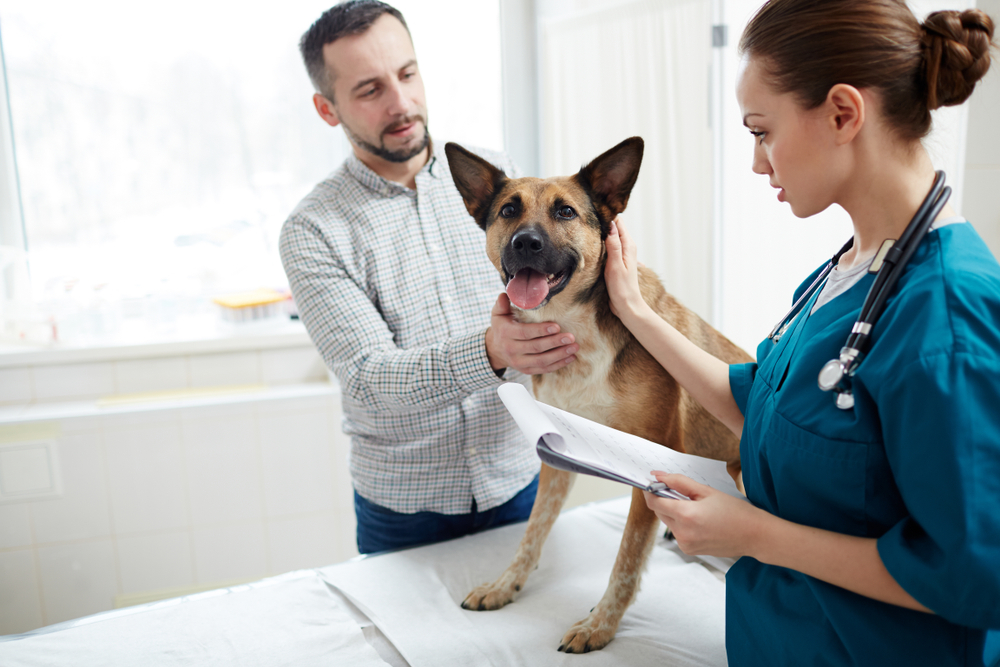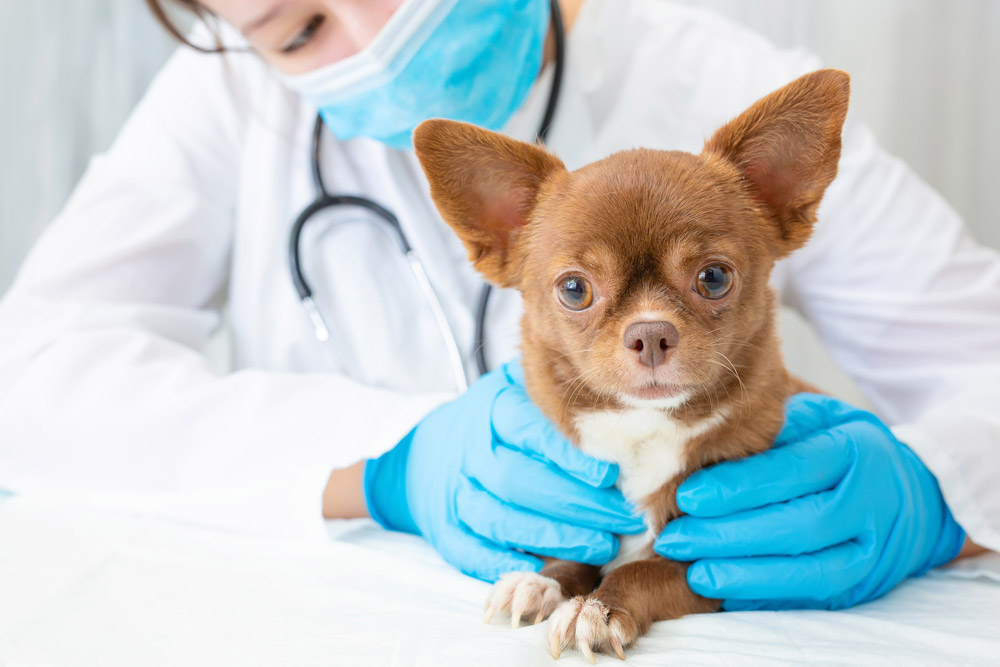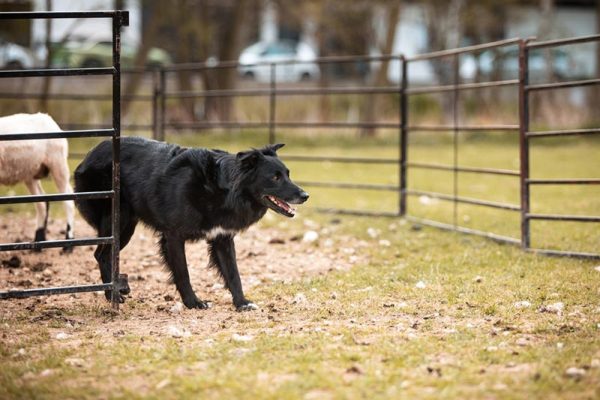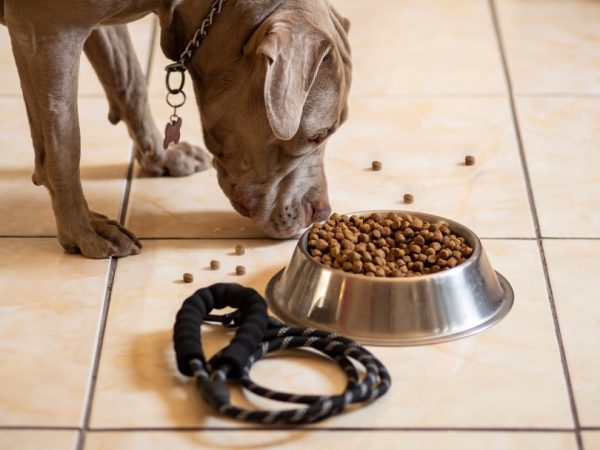In this article
Vestibular disease in dogs, also known as canine idiopathic vestibular syndrome or “old dog vestibular syndrome,” is a relatively common condition that affects a dog’s balance system.
It can be distressing for owners to witness, as the clinical signs will often develop suddenly and can be quite dramatic. The good news is that it is not usually painful or life-threatening. It often resolves on its own without the need for medical intervention. Some cases, however, do require medical management, depending on the underlying cause.
In certain circumstances, vestibular disease can recur, and a dog will experience it more than once. Usually, this is due to an underlying cause that has not been addressed. Some dogs are more prone to developing the disease and therefore, are more likely to have recurring episodes. This article will discuss the ins and outs of vestibular disease in dogs.

What Is Vestibular Disease?
Vestibular disease is a common neurological problem seen in dogs. It can be challenging to treat. The vestibular system is a complicated set of apparatus located inside the inner ear that helps your dog with their spatial orientation and balance. Inside the inner ear, there is a network of chambers and channels that feed information to the brain about your dog’s head movement and body position that make up the vestibular system.

The vestibular system works with your dog’s eyes, joints, and muscles to relay information to the brain about the dog’s position and movement in space. This enables your dog to maintain balance and navigate their surroundings with confidence.
When there is a problem with the vestibular system, there will be obvious clinical signs. Vestibular disease causes a disruption in the normal function of the inner ear.
- Idiopathic: Idiopathic means that the underlying cause cannot be identified. In the majority of cases of vestibular disease, the cause is unknown.
- Secondary: Vestibular disease can be caused by ear infections, neurological disease, tumors, an injury to the head, and even certain medications. This is much less common.
What Are the Clinical Signs of Vestibular Disease?
Clinical signs of vestibular disease in dogs usually occur suddenly and can be dramatic. It can also be a worrying time for owners.
- Head tilt: This is usually the first sign noted and the most obvious. The dog tilts their head to one side.
- Balance issues: Your dog may lose their balance and be unable to stand up. They often stagger and wobble about.
- Circling: Due to the combination of a loss of balance and head tilt, dogs often start to walk around in circles repeatedly.
- Nystagmus: This is the name for rapid, involuntary eye flickering. The movement can be vertically, horizontally, or spinning in a circle.
- Vomiting and nausea: Dogs often feel nauseated and will vomit. This is due to the disorientation caused by the vestibular episode.
- Gait abnormalities: Some dogs adopt a wide-based stance to support themselves in an attempt to improve their balance.
How Is Vestibular Disease Diagnosed?
Your vet will start by taking a full history from you and performing a thorough physical exam. They will pay special attention to your dog’s ears to search for any signs of ear infections and perform a neurological exam to assess the dog’s reflexes, general coordination, and posture.
They will often take a urine and blood sample to check organ function and blood cell counts and screen for signs of infection. In some cases, imaging like X-rays and ultrasound may be required.

How Is Vestibular Disease Treated?
If your dog is suffering from vestibular disease, this is usually self-limiting. This means the disease will resolve on its own in a few days or weeks, depending on the severity of the condition. Treatment will focus on managing the clinical signs, making your dog as comfortable as possible, and ensuring they don’t hurt themselves.
Supportive care for dogs can include making sure any potential hazards are removed from their environment. This means if they are disorientated, they will be less likely to hurt themselves.
Some dogs might need help going to the bathroom if they are unstable on their feet, so be wary of this. It can help to keep the home as quiet as possible so your dog remains calm and is not overstimulated in any way.
It is important that your dog has easy access to water and food, as it may be difficult for them to eat and drink readily. Your vet may prescribe medication for your dog to ease nausea or prevent vomiting.
If you are concerned about the health and well-being of your pet, seek veterinary advice for the best course of action.
If you need to speak with a vet but can't get to one, head over to PangoVet. It's our online service where you can talk to a vet online and get the advice you need for your pet — all at an affordable price!

Can Dogs Get Vestibular Disease More Than Once?
The short answer is yes, they can. Dogs do sometimes experience recurrent episodes of vestibular disease. The incidence of recurrence episodes can vary. It is not commonly seen, but it is definitely possible, and it is not yet fully understood why this happens.
It is more commonly seen in cases where there is an underlying cause of the vestibular disease that has not been addressed. This means when the vestibular episode has resolved, there is still an issue that is likely to cause problems again.
If your dog is experiencing repeated episodes of vestibular disease, your vet will want to carry out an investigation to see if they can identify any other issues that may be contributing to the development of the disease. Underlying conditions that can lead to repeated issues include ear infections affecting the middle of the inner ear, tumors, and neurological disorders like encephalitis and meningitis.

Are Some Dogs More Prone to Vestibular Disease?
Older dogs seem to be more prone to vestibular episodes. Certain breeds of dogs, such as French Bulldogs, English Bulldogs, Cavalier King Charles Spaniels, Boxers, Cocker Spaniels, Springer Spaniels, and Golden Retrievers, are thought to be more prone to developing the disease. While this means the incidence of the disease is increased in these breeds, it does not necessarily indicate they will experience recurring episodes.
If your dog has had one episode of vestibular disease, it is natural to worry about them having another. It is important to remember that the severity of the initial episode does not necessarily mean your dog is more likely to go on to have another episode. Dogs that do experience repeat episodes can have long intervals between them. There may be a considerable amount of time between episodes; some dogs do not have another one for years after their first.
Is Vestibular Disease Treatable?
As mentioned, the good news is that idiopathic vestibular disease in dogs is usually self-limiting. This means it will resolve on its own. The timeframe of resolution does vary between dogs. Most will show an improvement within the first 3 days of clinical signs developing. Typically, complete recovery is seen within a couple of weeks.
Despite the fact that clinical signs develop suddenly, they disappear gradually over time. The first thing to start improving is usually the head tilt, nausea/vomiting, and nystagmus. A return to normal gait and posture usually follows next. Once all clinical signs have resolved, there are usually no long-term negative effects. When your dog has recovered, they can continue with their lives as normal with no adverse effects.


Tips for Living With a Dog Prone to Vestibular Disease
If your dog has had an episode of vestibular disease or if they are prone to it and you are concerned, there are a few different things you can do at home to help your dog.
1. Keep your dog in good health
Wherever possible, strive to maintain a healthy lifestyle for your dog. This includes exercising them regularly, feeding them a balanced diet, and keeping their home environment as stress-free as possible.
2. Know the signs
Monitor your dog closely for any early clinical signs of vestibular disease. This can include subtle changes in their balance or a slight head tilt and flickering of their eye. If you see any of these signs, you should contact your vet immediately.
3. Dog-proof your home
Make your home as safe as possible so if your dog does have an episode, they will be less likely to injure themselves. Hard floors can be slippery and difficult for dogs to grip, so placing mats down or moving your dog to carpeted rooms can help. Remove any sharp or pointy bits of furniture that your dog could fall into and injure themselves on.

Conclusion
Vestibular disease is a frightening disorder for owners and dogs. Recurrence of the disease is a possibility. Despite this, many dogs with idiopathic vestibular disease only experience one episode and go on to lead healthy lives with no further issues.
Some dogs that experience repeated episodes may have an undiagnosed underlying disease that is causing the vestibular issues. If you see any clinical signs in your dog, you must consult your vet as soon as possible to ensure your dog receives the appropriate veterinary care.
Featured Image Credit: Przemek Iciak, Shutterstock


















